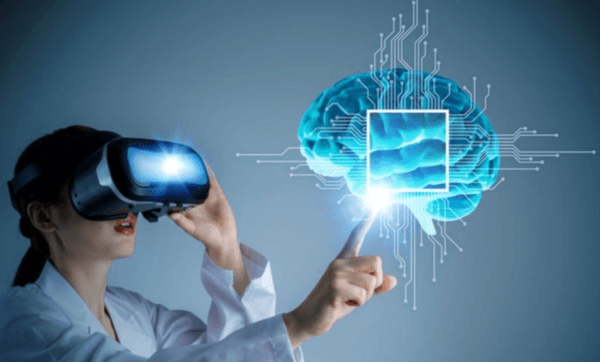
How to Maximize Your ROI on Server Colocation, Part Two: Be Strategic about Your Data Center Migration
May 22, 2019
Why Flash Storage in Data Centers Makes Medical Records Storage Easier and Effective
May 23, 2019Artificial intelligence (AI) has had an indelible impact in recent years in business-critical applications used by nearly every major industry. The healthcare industry, which has historically dealt with inefficiencies created by siloed data and legacy systems, is now investing heavily into these applications.
AI’s potential to create a positive impact in the healthcare industry is virtually limitless. Let’s take a closer look at the current state of healthcare technology, and where current trends may lead in the future.
The Current State of Healthcare Technology
According to a recent Forbes report, current investment in AI-powered healthcare technology is expected to surpass $6 billion by 2021. The benefits to adoption are numerous, but perhaps the most significant is AI’s potential to reduce spending while improving patient outcomes, a dichotomy healthcare professionals often struggle with.
AI’s applications for healthcare run the gamut from preventative medical intervention and robot-assisted surgery to streamlined administrative infrastructure and increased cybersecurity. Here are a few standout capabilities:
Reducing Dosage Errors
Experts attribute AI’s assistance in determining the proper dosage of medications with potential cost savings of nearly $16 billion. A group of researchers in California, led by Dr. Ali Zarrinpar and assisted by AI, came up with an unprecedented mathematical formula that correctly determined the dose of immunosuppressive drugs organ transplant recipients needed to recover successfully without rejecting their new organs.
Since dosing errors make up an estimated 37 percent of all preventable medical errors, applying AI to the process can result in both lower costs for providers and lower risk for patients. In this example, AI helped a team of skilled professionals assess a vast quantity of situational conditions that might otherwise have taken years to manually quantify.

Automated Database Management
The digitization of healthcare has led to an increased need for efficient ways to manage the huge volumes of personal health data existing in healthcare networks today. There’s been a strong push to develop health information management (HIM) infrastructures that reflect the current IT ecosystem — today largely comprised of disparate systems used to aggregate and store data — as well as the stringent demands of evolving regulations on patient privacy and data security.
Many healthcare IT professionals are turning to AI-enabled database management platforms, like those popularized by the Oracle applications autonomous database. The main premise of an autonomous database is to automate of administrative data management tasks in the cloud. This includes automated software patching and upgrades, as well as the automatic detection and eradication of security threats. Database management powered by AI can mitigate the complexity of manual processes and reduce the possibility of human error while ensuring secure and efficient storage of data in the cloud.

Connected Machines
AI and the Internet of Things (IoT) have a complementary relationship because both serve our need to be instantly connected with the information, products, and services we seek. AI and IoT are also expected to help optimize machine learning capabilities for predictive analytics.
Currently, there is a proliferation of connected devices in healthcare, from mobile applications and blockchain-based medical record systems to wearables and smart devices. AI works in tandem with endpoint devices like these to increase the value for patients. Healthcare providers can also leverage AI and machine learning to intelligently deploy preventive maintenance to increase the efficiency of “smart hospitals.” Additionally, access to holistic patient data (such as the information collected by fitness trackers or smartwatches) can give providers a better understanding of patient habits, helping identify potential health concerns more expeditiously.
What’s Next for Healthcare Technology?
The Forbes article we’ve discussed quotes Gurpeet Singh, the U.S. health services leader at PricewaterhouseCoopers (PwC): “investment [in AI healthcare applications] is ramping up very quickly,” with “three major zones of investment.” These zones are:
- Digitization — using AI and other tools to reduce costs associated with operational processes.
- Engagement — improving interactions between patients or consumers and healthcare providers, systems, and services.
- Diagnostics — the development of new products or services with AI algorithms that provide patients with diagnoses or comprehensive health advice.
AI has left its mark on the healthcare industry. Technologists and providers will continue to identify and innovate, to the benefit of all parties. AI will play a pivotal role in the future of healthcare technology and continue to positively impact the way that providers and patients approach healthcare.

1 Comment
[…] faster than humans and provides best to best treatments for patient’s recovery. This is possible only with AI technology. Now, what is […]